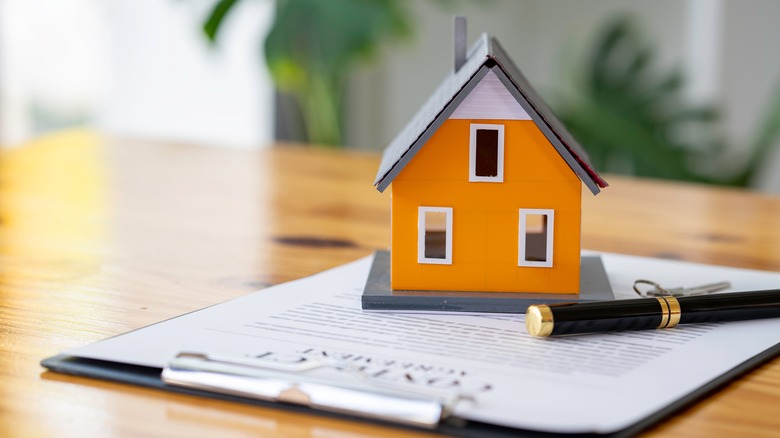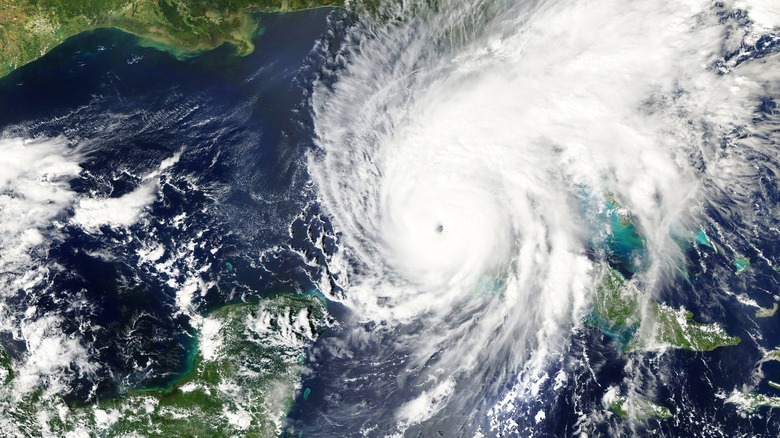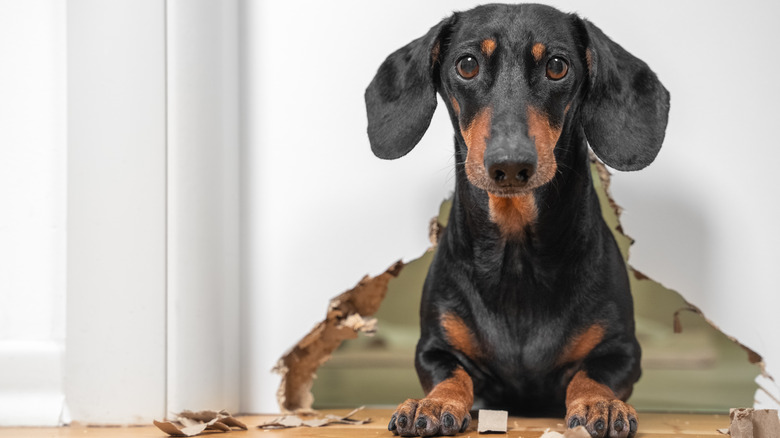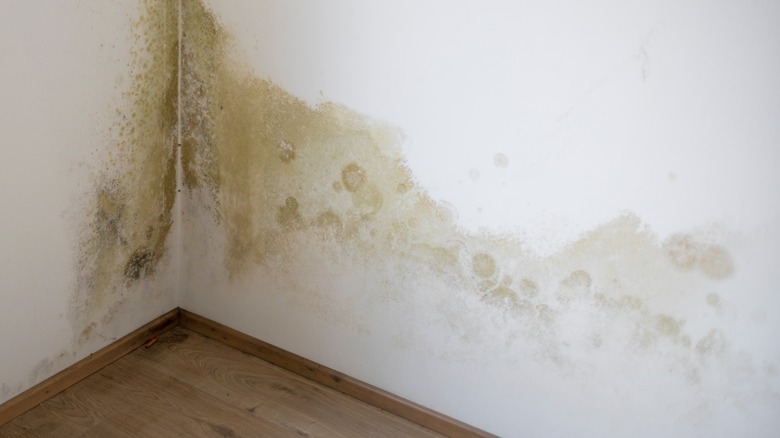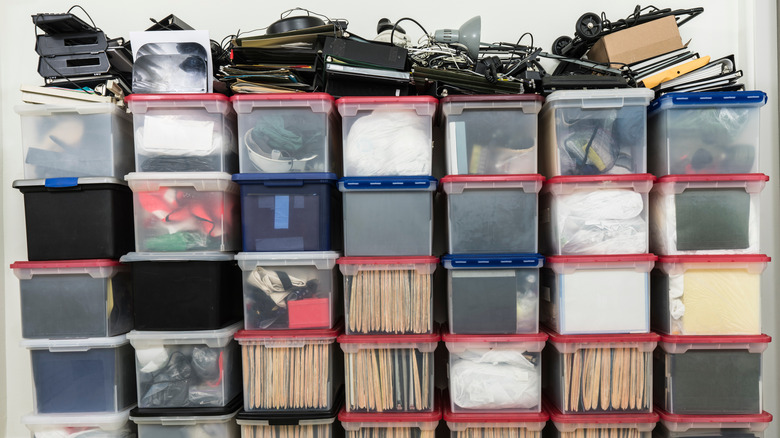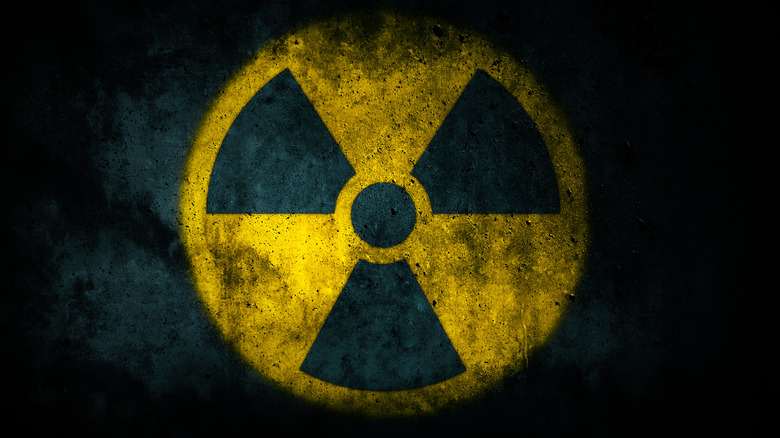Common Damages That Are Not Covered By Homeowners Insurance
Becoming a homeowner is an exciting and empowering step in life, but suddenly finding yourself saddled with all the responsibility of owning a home can feel overwhelming. Not only do you now have a mortgage to worry about, but you also have to figure out the ins and outs of homeowners insurance. It may initially seem confusing and frustrating to get a handle on this aspect of homeownership, but when it comes down to it, insurance is a necessary evil you'll be glad to have when issues arise.
Figuring what is covered by a standard policy can be difficult, considering each company and each policy offered is unique. To save yourself some headaches, consider hiring an insurance broker. Nerd Wallet says these professionals can use their expert knowledge about insurance to find the perfect fit for your specific needs. Until you find your broker, here are some things worth taking note of because they may not be included in a basic homeowners insurance policy.
Natural disasters
When nature strikes, the last thing you want to worry about is whether or not your insurance is going to cover the damage done to your home. Before this happens, make sure that any type of weather event common to your area is covered. You might have to ask for it to be covered, or it might be automatically included. For example, tornadoes are covered by almost all standard insurance policies. Alternatively, homeowner's insurance never covers landslides or mudslides, warns Value Penguin.
Flood insurance is a popular option, but it most be purchased separately because it is not covered by standard homeowners insurance (via Value Penguin). This will be especially important if your house is situated in a flood zone, in which case you'll be required to purchase it in the event that you're applying for a federally-backed mortgage. Similarly for earthquakes and hurricanes, if you're in an area at risk for these natural disasters, you'll need to purchase extra insurance to cover your home. While this is an annoyance, it's better to be safe than sorry when these devastating events hit your region.
Pets and pests
Your skin probably crawls when you hear the word pest. When they invade your home, they can quickly cause a shocking amount of damage. Unfortunately, most pests, such as rats or mice, aren't covered under typical homeowners insurance, explains R.V. Johnson Insurance. This is because insurance companies consider these to be preventable issues when the proper care and maintenance are performed on the home. To ensure your home is safe from vermin, take the proper steps to protect it by sealing any holes or access points around your property, and, when necessary, call an exterminator.
Coverage for dogs and other pets is a tricky part of insurance that varies between companies and breeds. We all love our furry (or scaly) friends, but sometimes they can cause damage to our homes or to those who visit. Many breeds are covered without question; according to Quicken Loans, however, there are some breeds that won't be covered if they are considered dangerous or exotic.
Mold and neglect
Taking care of your home, cleaning it regularly, fixing things when they break, and maintaining the structure and overall property are all parts of being a responsible homeowner. According to Policy Genius, when damage is caused to your home due to a lack of maintenance or neglect, it will not be covered by any insurance company. Just like with pests, it's considered preventable damage that is easily avoidable. Many companies are now sending out inspectors to ensure the roof of a home isn't at high risk for damage (via The Zebra). If they deem anything they find too big of a risk, the company can ask for specific actions to be taken, or else they will cancel their coverage of your home. To avoid this, keep your gutters clean, trim and tidy up shrubs and bushes, and clear away any dead trees or limbs that could fall on the home.
Mold is a dangerous risk of homeownership, notes the CDC. When left untreated, mold can cause severe damage to your home and the health of your family. U.S. News says mold is also not covered unless the mold is caused by a sudden event such as a tornado, hurricane, or flood.
Out-of-code, intentional damage, and home business
Each city has its own building codes that all new home builders and remodelers must follow, and inspections are done before, during, and after the building process to ensure it is properly completed. However, if work is done on the house that wasn't completed by a professional, you might have parts of your home that are not up to code. If the home does not follow local building codes, it will not be covered under insurance, according to Policy Genius.
Intentional damage done by someone living in the house isn't covered either, says Policy Genius. Whether it's an irritated teenager or a clumsy partner, these damages are also considered preventable.
With the rise in home-based businesses within the last few years, you might wonder if your homeowners insurance covers yours. Whether you are storing supplies, machines, or merchandise at your home, you'll want everything covered in case of an accident. Although Allstate says it's not usually covered under standard policies, it's something you can ask to be added.
Government action, war, and nuclear hazards
There are some events that we would rather not think about, but when you own a home, it's essential to know what will happen if these unfortunate events occur near you. If a nuclear accident occurs, your insurance company will not cover any damages you incur (via Value Penguin). It will be the nuclear plant that is required to cover damages done when the plant fails. It's possible that damage from a fire caused by these events will be covered, but you need to check to be sure.
Along the same token, in the event that your home is damaged during a war, it will not be covered by your insurance. Additionally, any acts of the government or public authority that cause damage to your home will not be covered either. These are issues you hope never to experience; unfortunately, you'd be left to repair the damages yourself if they happened.
